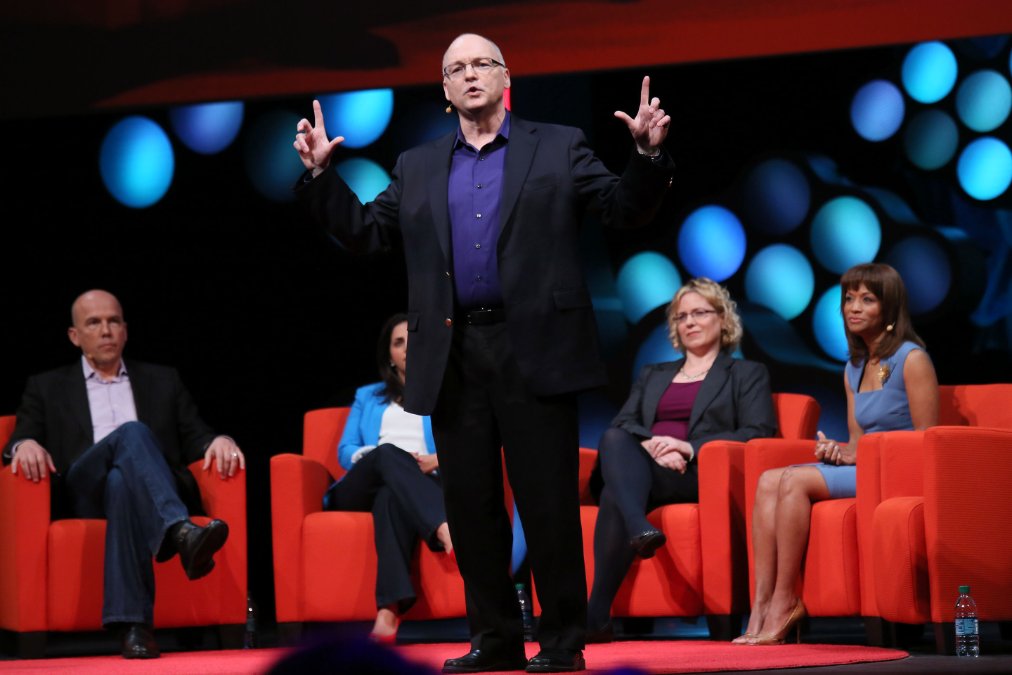At the heart of every great innovation is a great compromise: in order to start something new, we have to stop something old. Think of it as a deal you make with yourself–the things you’ll give up in order to make room for future growth. Our days are filled with countless small tasks–activities that prevent us from pursuing the bigger, more substantive creative projects on our larger horizon. There will never be enough time to write that novel you’ve been dreaming about or open that business you’ve had in mind for years. That’s why it’s up to you to free up your world and carve out the space for innovation.
We cram our lives with stuff that makes us feel comfortable, objects we irrationally hold onto far too long. They’re in that filing cabinet we put into storage because we couldn’t bring ourselves to purge those files. Or they’re in that garage we should’ve cleaned out years ago–the garage that was so full with old scrap that we couldn’t ever do something new in it.
Occasional reminiscence is good for the mind and soul, but too much backward-looking prevents progress. Excess nostalgia can turn into hoarding–when the past pushes out the future. This is almost always unintentional. There are tons of organizations that inadvertently stifle innovation by fixating on the past, placing too much emphasis on classics and standards.
Consider, for example, the crisis surrounding symphonies around the country. Symphony attendance by those under forty has plummeted over the past decade at an alarming rate. Yet endowments by patrons over forty have remained relatively steadfast over the same period. This support keeps an increasingly aged audience in orchestra hall seats at the expense of developing programming that will attract the next generation of symphony goers. So the very people who hope to perpetuate the love of symphonic music are actually unwittingly creating a barrier to that possibility.
The worst of all innovation strategies is to have an increasing share of a decreasing market. The best newspapers, timeshares, and bowling allies will be the last to go, but they will still go. The entrepreneurs who reimagine their industry, who anticipate and feel their way towards the future will be the ones who survive and thrive in new environments. Here are three things you can do to stop relying on old ways and become a forward-thinker in an ever-changing world.
1. Change some of the guard. Seek out the voices of those who have little to project, who have little stake in tradition–the younger, more vibrant individuals in your organization. Ask them how to update the old, how to make the homogenous a little more heterogeneous. Encourage them to push existing boundaries. Create an innovation advisory board–a group that represents the new. Where a board of directors keeps things on track, an innovation advisory board deliberately disrupts that track to promote innovative thinking.
2. Leave room for the new. Run many experiments to see what works and what doesn’t work. Be patient with your experiments: adjust and tinker with them until they get traction. Actively make available the tools that will stimulate innovation. This requires leaving both time and money open. Set aside a pool of funds solely devoted to the development of creative ideas.
3. Just say no. Have the audacity to turn down clients, customers, and patrons who support your legacy but not your future. There will always be people who want to give you money to be like you used to be. If you turn their support down, you’ll open up the opportunity for new sectors of growth. Substitute a new program, project, or service for a more expensive traditional option. Establish a second brand or a second track that will attract a new audience. For example, mixers with wine and cheese and jazz quartets have brought young people into the symphony community for the first time. By trying something different, symphonies are finally attracting an audience for the future.
Innovation isn’t just a matter of ingenuity and resourcefulness–it’s also a matter of capacity and courage. We’re always going to have too many things to do in a day. We’ll always be too busy to start that novel or open that business. So if we want the room to pursue our innovation project, something’s got to give. It turns out that something is you. The only person with the power to free up your life for creativity is you. What are you willing to give up to make room for innovation?

Jeff DeGraff is the Dean of Innovation – an author, speaker, and advisor to Fortune 500 companies and mission-driven organizations worldwide. He’s the CEO and Founder of Innovatrium, Founder of Intellectual Edge Alliance, and Clinical Professor of Management and Organizations at the Ross School of Business at the University of Michigan. Jeff co-created the Competing Values Framework and developed the Innovation Code and Innovation Genome methodologies which provide organizations with practical tools to reconcile competing priorities and drive breakthrough performance. His mission is the democratization of innovation: making systematic innovation accessible to everyone, everywhere, every day.
